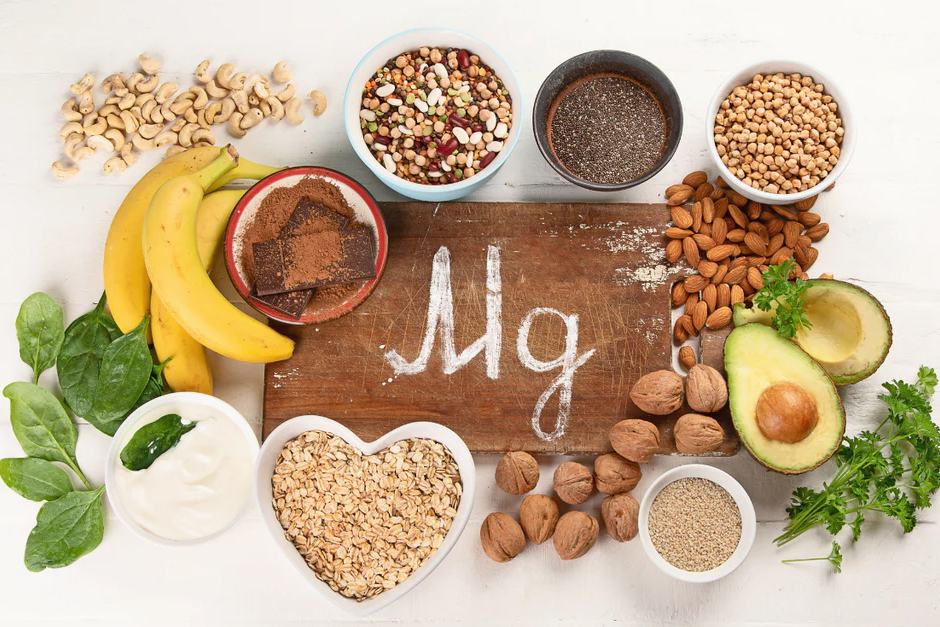Let’s talk about something incredibly vital, yet often overlooked until there’s an issue: your blood pressure. It’s the silent force moving blood through your body, delivering oxygen and nutrients. When it’s healthy, you feel great. When it’s not, it can be a significant risk factor for various health challenges down the road. While lifestyle choices like exercise and stress management play huge roles, what you put on your plate might be the most powerful, everyday tool you have.
Forget restrictive diets for a moment. Instead, let’s focus on nourishment. Specific nutrients are absolute rockstars when it comes to keeping your blood pressure in the healthy zone. They work behind the scenes, ensuring your arteries are flexible, your fluid balance is right, and your heart isn’t working harder than it needs to. Here are five essential nutrients you should be thinking about.
The Mineral Maestros: Magnesium, Potassium & Calcium
Think of these three as the dynamic trio for your cardiovascular system. They’re electrolytes, meaning they carry an electrical charge when dissolved in body fluids, and they’re crucial for countless bodily functions, including blood pressure regulation.
Magnesium: The Muscle Relaxer
Often called “nature’s relaxant,” magnesium plays a critical role in relaxing the smooth muscles that line your blood vessels. When these muscles are tense, your blood pressure goes up. Magnesium helps them loosen up, allowing blood to flow more freely. It’s also involved in nerve function and maintaining a steady heartbeat. You can find magnesium in abundance in leafy green vegetables, nuts (like almonds and cashews), seeds (pumpkin, chia), whole grains, and dark chocolate.
Potassium: The Sodium Balancer
Potassium is magnesium’s partner in crime, especially when it comes to sodium. Too much sodium can lead to fluid retention and increased blood pressure, but potassium helps counteract these effects by promoting sodium excretion through urine. It’s also vital for maintaining proper fluid balance and nerve signals. Load up on potassium with foods like bananas, avocados, sweet potatoes, spinach, beans, and oranges.
Calcium: More Than Just Bones
While calcium is famous for building strong bones, its role in blood pressure is equally significant. It helps blood vessels contract and relax, and a deficiency can actually contribute to elevated blood pressure. However, it’s all about balance; simply taking calcium supplements without addressing other nutrient needs isn’t the magic bullet. Focus on getting calcium from whole foods like dairy products (milk, yogurt, cheese), fortified plant-based milks, leafy greens (collard greens, kale), and fortified cereals.
Beyond Electrolytes: Fiber & Omega-3s
While minerals are key, other nutrient powerhouses contribute to overall cardiovascular health, which in turn supports healthy blood pressure.
Fiber: The Gut & Heart Helper
Fiber, particularly soluble fiber, does wonders for your heart. It helps lower LDL (“bad”) cholesterol, which can contribute to plaque buildup in arteries. Furthermore, high-fiber diets are often associated with better weight management, and maintaining a healthy weight is a direct pathway to healthier blood pressure. You’ll find fiber in all whole plant foods: fruits, vegetables, whole grains (oats, brown rice, quinoa), legumes (beans, lentils), and nuts and seeds.
Omega-3 Fatty Acids: The Anti-Inflammatory Champions
These essential fats are celebrated for their anti-inflammatory properties, which are crucial for maintaining healthy blood vessels. Chronic inflammation can damage artery walls, making them stiffer and less flexible, thereby increasing blood pressure. Omega-3s help keep your arteries supple and reduce inflammation throughout your body. Reach for fatty fish like salmon, mackerel, and sardines, or plant-based sources like flaxseeds, chia seeds, and walnuts.
As Dr. Anya Sharma, a cardiologist specializing in preventative medicine, often emphasizes, “These nutrients aren’t just about managing symptoms; they’re foundational building blocks for a resilient cardiovascular system.”
Embrace a Nutrient-Rich Lifestyle
The beauty of focusing on these five nutrients is that they all come bundled in delicious, whole, unprocessed foods. Instead of thinking about isolated supplements, consider how you can incorporate a wider variety of fruits, vegetables, whole grains, lean proteins, and healthy fats into your daily meals. Small, consistent dietary changes can lead to profound improvements in your blood pressure and overall well-being. Listen to your body, eat smart, and give your heart the support it deserves!




